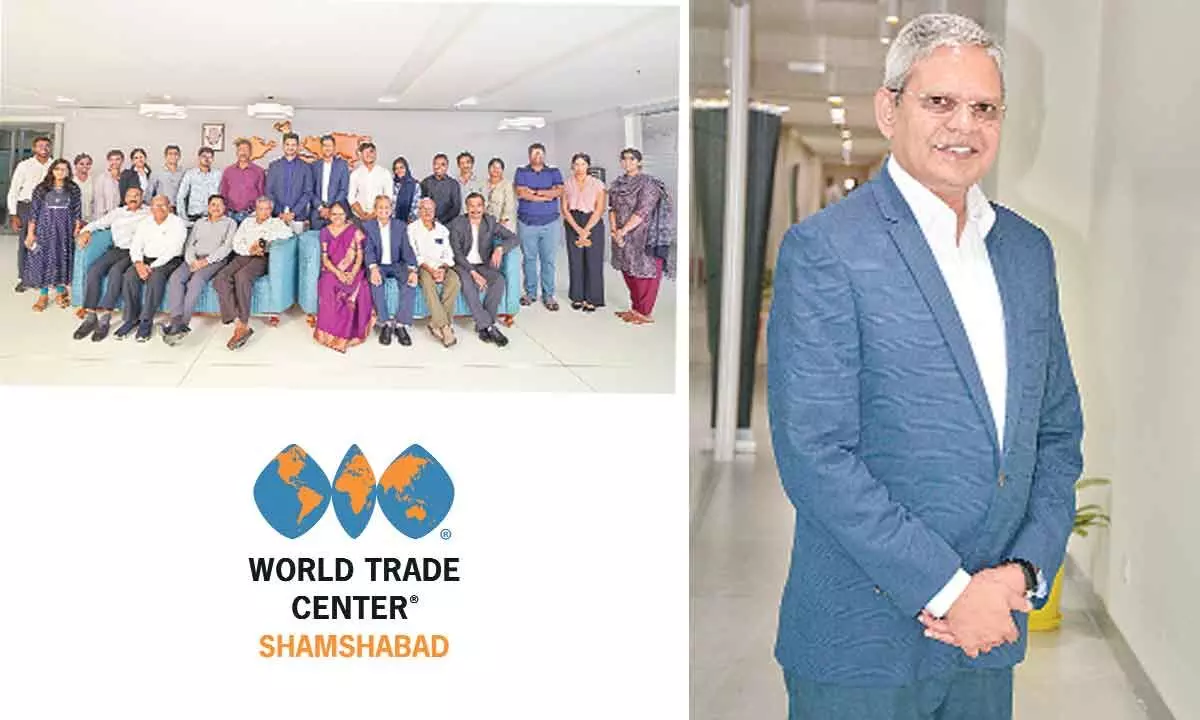‘TS should implement action plan for AMR’
Hyderabad is the largest producer of antibiotics with big pharma companies operating from here, besides the number of hospitals and beds per capita is higher in this city, says IFCAI president
image for illustrative purpose

National Action Plan is in place for the containment of Antimicrobial Resistance (AMR), but as health being a State matter, the Telangana government needs to release a GO (government order) after approving an action plan, which is already in place in Andhra Pradesh, the president of IFCAI (Infection Control Academy of India) Dr Ranga Reddy Burri said.
He also stressed on the importance of its implementation in Telangana as Hyderabad is the largest producer of medicines especially antibiotics, with many big pharmaceutical companies operating out of this city besides the number of hospital and beds per capita are higher in Hyderabad compared to other States.
Dr Ranga Reddy Burri was speaking at an educational programme on Antimicrobial Resistance (AMR) Stewardship Series organised by Federation of Asian Biotech Association (FABA) for life science students and healthcare professional in Hyderabad on Sunday. The seminar was supported by IFCAI (Infection Control Academy of India), World Trade Center Shamshabad, BIRAC and Sri Satya Sai Institute of Higher Learning.
“There is a National Action Plan in place but as health being a State matter, the policy has to be introduced by the States. Being a State with so many healthcare organisations, Telangana has bigger responsibility than other States. Telangana government has a moral responsibility to draw the Action Plan, formulate it and implement it in spirit,” Dr Ranga Reddy Burri told Bizz Buzz.
He further said that the Telangana government has to officially form a team to draft the action plan, later release a GO after approving the plan. “But we have not got any traction and find sluggishness on part of the government. I am going to push for this in my capacity as being on the panel of CII-Healthcare and as Chairman of Indian Medical Association Public Health and Community Awarenes,” he further said.
With the action and implementation plan we are looking at 15–20 per cent reduction in the usage of antibiotics in the public healthcare sector by 2025-2026, he added.
As of now only four States have implemented an action plan (policy) in regard to containment of AMR, the fourth being Andhra Pradesh government. Kerala, Delhi and Madhya Pradesh are the other States. For a GO, introduced in June, 2022 by Andhra government, the report was prepared in consultation with FABA and IFCAI, said Prof Pallu Reddana, Executive President, FABA.
In November a global workshop organised with experts from 15 countries who gave their best practices to Andhra Pradesh for effective implementation of the policy. The report which includes actions for the implementers to undertake will be formally launched on Monday i.e May 15, 2023 by Krishna Babu, Principal Secretary, department of Health and Medical, government of Andhra Pradesh.
Prevalence of AMR is high in Telangana but unfortunately the exact numbers are not available as the surveillance, which means getting all data and analysing it, is weak.
“The hospitals are wary to share the data because of their own commercial reasons, one being that there is a huge antimicrobial resistance problem in their hospital. Government does not have a framework where they can push at least government hospitals to report them. That is why the State action plan has to be in place to tie all these loose ends. We need to have an action plan immediately in Telangana. Starting from awareness to the diagnostics, to understanding the surveillance and also the magnitude of the problem has to be studied to accordingly form a policy,” Dr Reddy said.
On a query about the scope for startups to set up an enterprise in the field of AMR, Dr Ranga Reddy Burri said, “Startups can play a vital role in every area including diagnostics and identifying the molecules which are required to treat infections. Innovators can come in and bring in alternatives to antibiotics. Startups can bring in some kind of apps where information can be collected in real time. If we have that kind of big database which can be analysed, it will help the decision making of the State.”
Other FABA members were present besides Dr Uday Saxena the Executive Secretary. The speakers included Jithin Vennapusa, Pranav Kashyap Godavarthy, Dr B E Pradeep, Associate Professor, BioSciences, SSSIHL and Prof Lakshmi Vemu Gorthi, Microbiology, KAMSRC.

